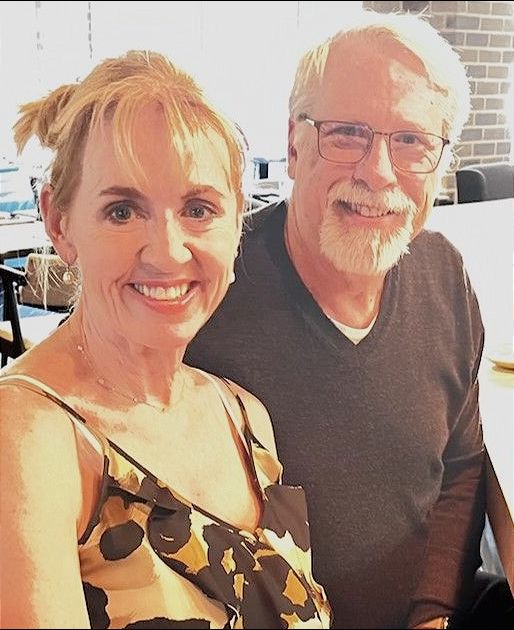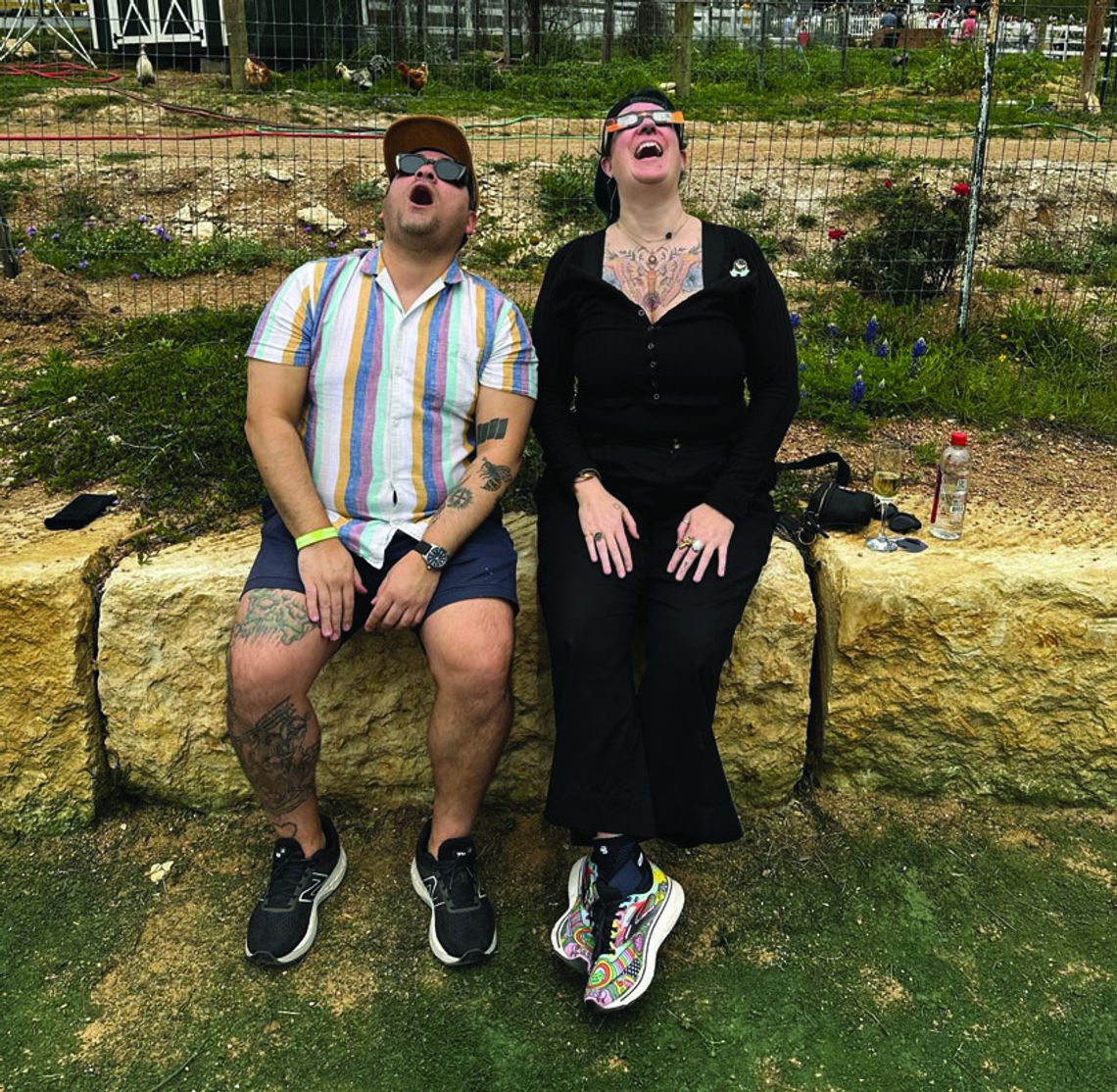EDITOR’S NOTE: Star contributor Olivier Bourgoin ran into two couples who made San Antonio and the Hill Country their choice destination for "chasing” the total solar eclipse: One through his Airbnb rental; the other, at dinner.
To say that a total solar eclipse is a rare occurrence is not an understatement.
The first one recorded over the continental United States happened in 1778 and the last one over Texas didn’t take place until 100 years later, in 1878.
Prior to this current edition, there has only been one other (in 2017), visible over the U.S. during the 21st century and there will not be another one in Texas until Aug. 12, 2045, when the path of totality will barely graze the Texas panhandle.
Without any morbid intentions, it is therefore fair to say that for many of us, myself included, Monday’s version could quite possibly be the last we experience in our lifetime.
During Monday’s event, other than Texas, only a handful of states will have received totality. In alphabetical order, they include Arkansas, Illinois, Indiana, Kentucky, Maine, Michigan, Missouri, New Hampshire, New York, Ohio, Oklahoma, Pennsylvania, Vermont … and Tennessee with the path of the moon’s shadow only barely grazing the northwest corner of that state.
Given the scarce opportunity for viewing such a celestial event, it’s no wonder that many people would travel from far-away places to find a suitable location to experience it.
Case in point, last Friday, I met a couple in a downtown San Antonio restaurant.
Rebecca and Bob Hessinger had just flown-in from Tampa. They have no ties to Texas, other than a previous visit to the Lone Star State to see a relative who was then a member of the diving team at the University of Texas. When asked about their interest in viewing the eclipse, Bob said, “I studied astronomy in high school, and I’ve always been intrigued by these events.”
His wife, Rebecca, chimed in, “We may not be eclipse chasers but we know one. And we did go out of our way to see a couple of them. One in Baja, California (it was also cloudy), and one in Mazatlán.”
Another visitor was Brenna Traynor. Because she had booked a reservation to my Airbnb for this specific date several months in advance, I rightfully assumed that the reason for her visit might be eclipse related.
“I’m from Sonoma, Southern California,” she said. “This is my first time in San Antonio, but I’ve been to Texas quite a few times, Austin, Houston, Dallas-Fort Worth.
“I flew into Austin to see some friends and will meet up with another friend who will be seeing the eclipse with me,” Traynor said.
When asked why she had picked the San Antonio region from among all U.S. cities in the eclipse path, she said, “I’ve been planning this trip for a few years and originally wanted to go to Durango, Mexico, since that will have the longest duration of totality.
“But I did some research and it wasn’t worth the hassle of international travel for just a few more seconds of totality, so I found the area domestically with the longest duration instead and landed on San Antonio!”
Traynor has always had a fondness for astronomy.
“My dad and I used to go up on a hill near my childhood home and stargaze together when I was little, and it’s been something special to me ever since,” she said.
“Seeing astronomical events of any kind is super exciting to me. The bigger the better, and a total eclipse is just about as big as you can get.”
Traynor did travel to Kentucky in 2017 to see the longest totality available. “It was surreal, and I was hooked.”
Traynor willfully admits to having become “a chaser.”
“I love seeing anything that has to do with the sky and travel to dark sky zones to see comets and meteor showers whenever they happen. I’d say I’m an aspiring eclipse chaser. I would love to see them in other parts of the world but haven’t had the chance ... yet.”
Monday, she and her friend — Rube Ibarra, who lives in Anaheim — headed out early to Grapetown Vine yards just south of Fredericksburg.
Although she may not be an eclipse chaser (yet), I think Traynor qualifies as a bona fide “astronomical wonders and rarities” chaser.











Comment
Comments